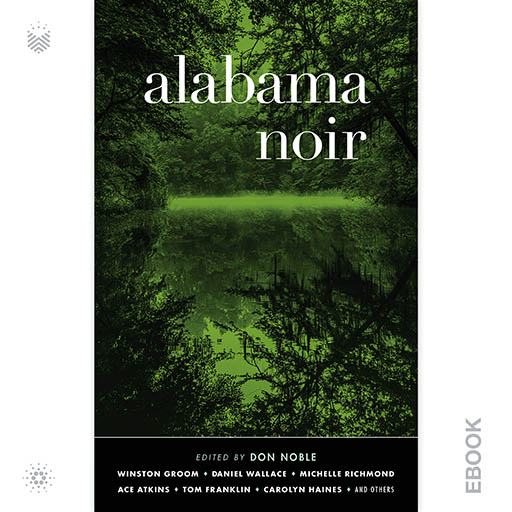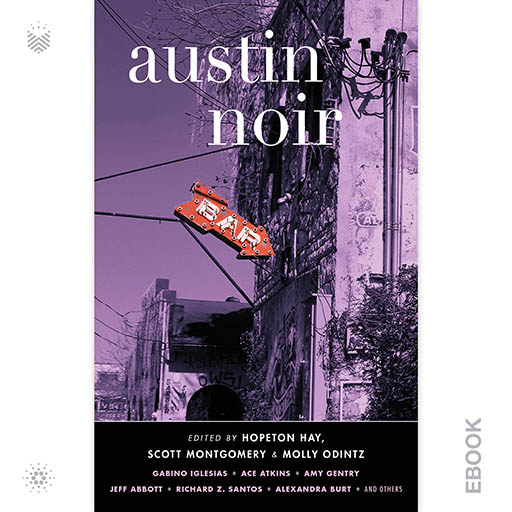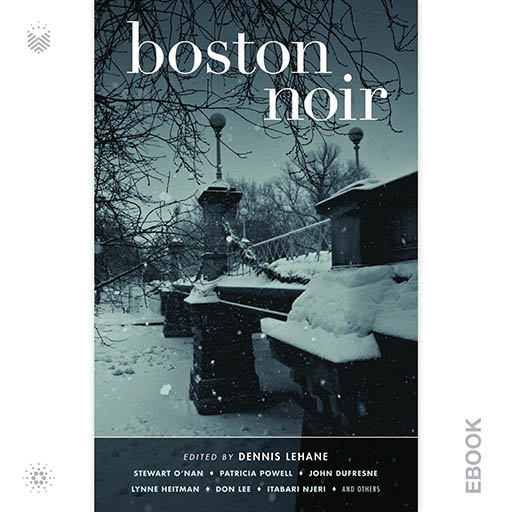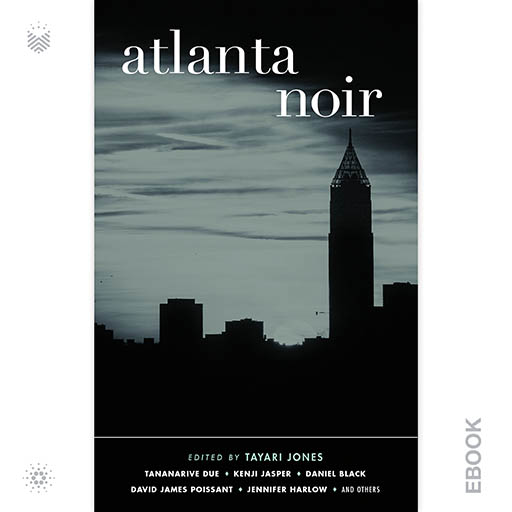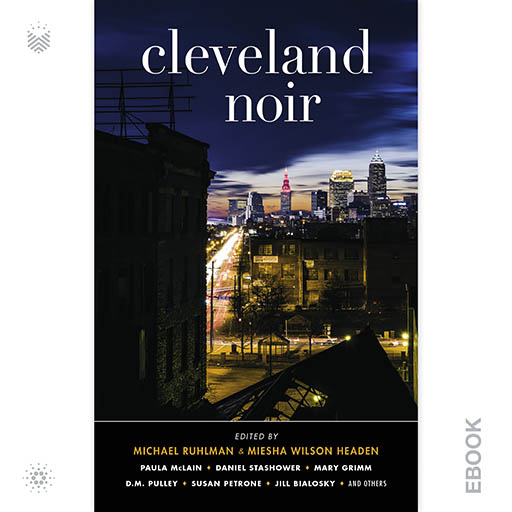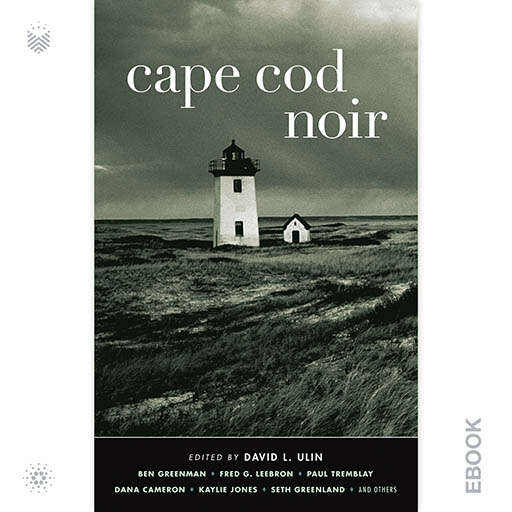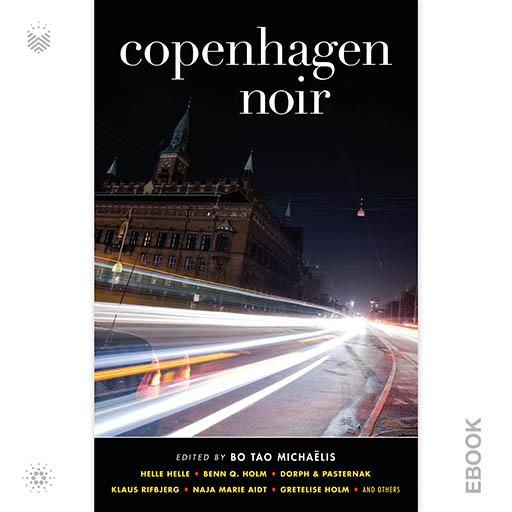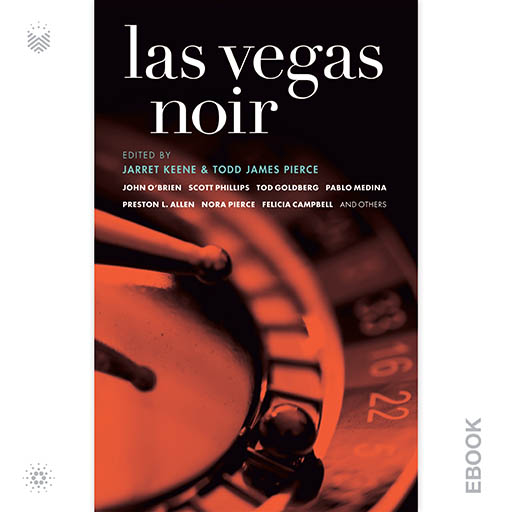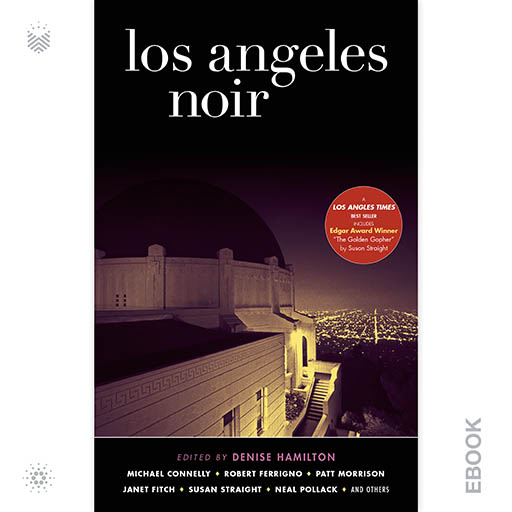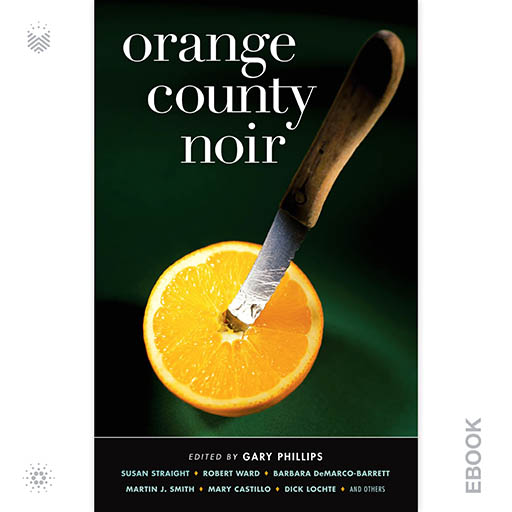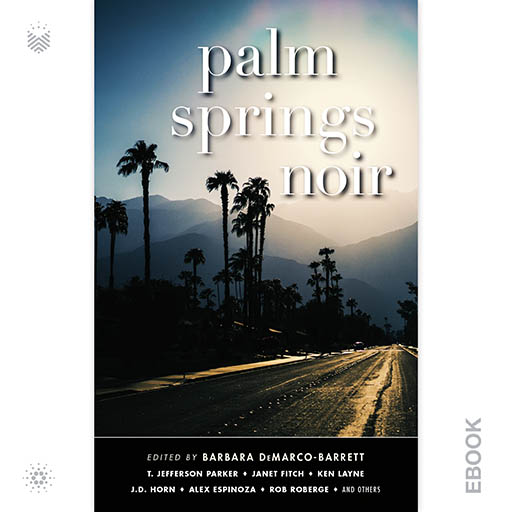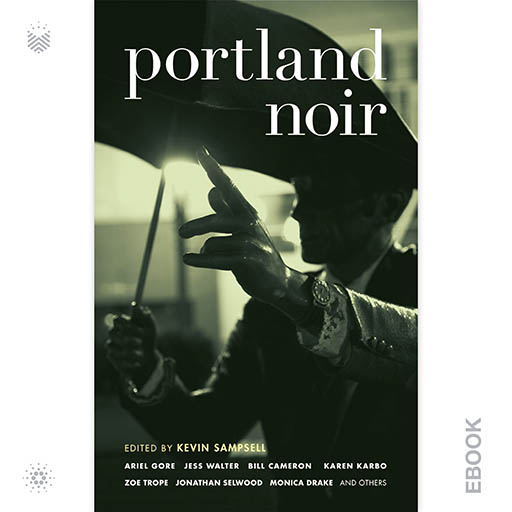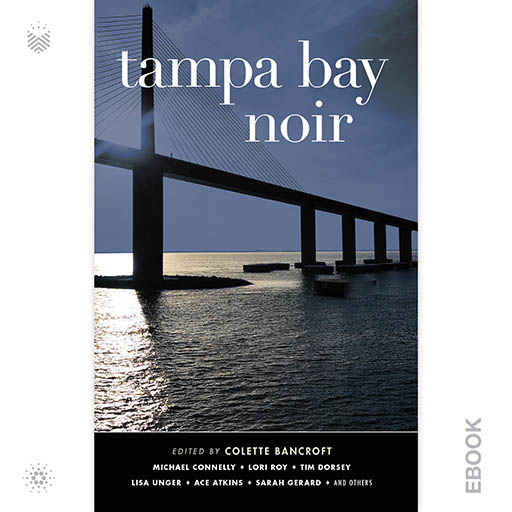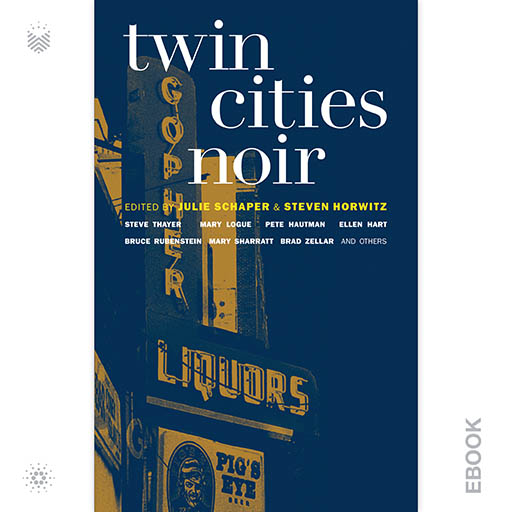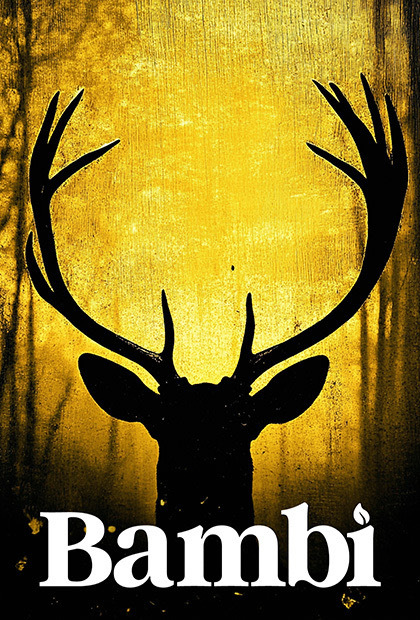by Maaza Mengiste (Editor)
Addis Ababa is a sprawling melting pot of cultures where rich and poor live side by side in relative harmony—until they don’t.
Akashic Books continues its award-winning series of original noir anthologies, launched in 2004 with Brooklyn Noir. Each book comprises all new stories, each one set in a distinct neighborhood or location within the respective city.
Brand-new stories by: Maaza Mengiste, Adam Reta, Mahtem Shiferraw, Linda Yohannes, Sulaiman Addonia, Meron Hadero, Mikael Awake, Lelis… Read More
by Don Noble (Editor)
Alabama joins Mississippi as fertile Deep South soil for the Noir Series.
Akashic Books continues its award-winning series of original noir anthologies, launched in 2004 with Brooklyn Noir. Each book comprises all new stories, each one set in a distinct location within the geographic area of the book.
Brand-new stories by: Ace Atkins, Tom Franklin, Anita Miller Garner, Suzanne Hudson, Kirk Curnutt, Wendy Reed, Carolyn Haines, Anthony Grooms, Michelle Richmond, Winston Groom, Ravi Howard, Thom … Read More
by Scott Montgomery (Editor), Hopeton Hay (Editor)
Austin joins Dallas and Houston in Akashic’s deep dive into the Lone Star State’s darkest dimensions
Featuring brand-new stories from: Gabino Iglesias, Ace Atkins, Amanda Moore, Jeff Abbott, Scott Montgomery, Richard Z. Santos, Alexandra Burt, Lee Thomas, Miriam Kuznets, Jacob Grovey, Chaitali Sen, Molly Odintz, Amy Gentry, and Andrew Hilbert.
Read More
by Dennis Lehane (Editors)
Dennis Lehane steps up to the plate as editor and presents a scintillating collection of deep, dark fiction.
Akashic Books continues its groundbreaking series of original noir anthologies, launched in 2004 with Brooklyn Noir. Each story is set in a distinct neighborhood or location within the city of the book.
Brand-new stories by: Dennis Lehane, Stewart O’Nan, Patricia Powell, John Dufresne, Lynne Heitman, Don Lee, Russ Aborn, J. Itabari Njeri, Jim Fusilli, Brendan DuBois, and Dana Cameron.… Read More
by Tayari Jones (Editor)
This much-anticipated and long-overdue installment in Akashic’s Noir Series reveals many sides of Atlanta only known to its residents.
Akashic Books continues its award-winning series of original noir anthologies, launched in 2004 with Brooklyn Noir. Each book comprises all new stories, each one set in a distinct neighborhood or location within the respective city. This much-anticipated and long-overdue installment in Akashic’s Noir Series reveals many sides of Atlanta known only to its res… Read More
by Michael Ruhlman (Editor), Miesha Wilson Headen (Editor)
Cleveland Noir joins Columbus Noir as the Akashic Noir Series continues its tour of Ohio, and navigates the dregs of the North Shore
“The noir stories in this volume hit all these same notes, and their geographies reflect the history of the city and its politics, its laws, poverty, alienation, racism, crime, and violence.”
Featuring brand-new stories from: Paula McLain, Jill Bialosky, Thrity Umrigar, Michael Ruhlman, Daniel Stashower, D.M. Pulley, J.D. Belcher, Alex DiFrancesco, Miesha W… Read More
by David L. Ulin (Editor)
Malice and mayhem simmer beneath the surface of one of America’s favorite vacation areas.
Akashic Books continues its groundbreaking series of original noir anthologies, launched in 2004 with Brooklyn Noir. Each story is set in a distinct neighborhood or location within the city of the book.
Brand-new stories by: William Hastings, Elyssa East, Dana Cameron, Paul Tremblay, Adam Mansbach, Seth Greenland, Lizzie Skurnick, David L. Ulin, Kaylie Jones, Fred G. Leebron, Ben Greenman, Dave Zeltserma… Read More
by Bo Tao Michaëlis (Editor)
Scandinavian writing has come to dominate the global crime-fiction landscape, and this volume offers a delicious, devious sampling of why.
Akashic Books continues its groundbreaking series of original noir anthologies, launched in 2004 with Brooklyn Noir. Each story is set in a distinct neighborhood or location within the city of the book.
Brand-new stories by: Naja Marie Aidt, Jonas T. Bengtsson, Helle Helle, Christian Dorph & Simon Pasternak, Susanne Staun, Lene Kaaberbøl & Agente F… Read More
by Jarret Keene (Editor), Todd James Pierce (Editor)
In this chilling portrait of America’s Sin City, lady luck is just as likely to dispense cold hard cash as a cold-hearted killing.
Akashic Books continues its groundbreaking series of original noir anthologies, launched in 2004 with Brooklyn Noir. Each story is set in a distinct neighborhood or location within the city of the book.
Brand-new stories by: John O’Brien, David Corbett, Scott Phillips, Nora Pierce, Tod Goldberg, Bliss Esposito, Felicia Campbell, Jaq Greenspon, José Skinner, P… Read More
by Denise Hamilton (Editor)
Los Angeles Noir brings you tales of crime and passion and betrayal from some of the most innovative and celebrated writers working today.
Akashic Books continues its groundbreaking series of original noir anthologies, launched in 2004 with Brooklyn Noir. Each story is set in a distinct neighborhood or location within the city of the book.
Brand-new stories by: Michael Connelly, Janet Fitch, Susan Straight, Héctor Tobar, Patt Morrison, Emory Holmes II, Robert Ferrigno, Gary Phillips, Christo… Read More
by Gary Phillips (Editor)
You may be disturbed—or possibly titillated—to discover what can happen once you cross the Orange Curtain . . .
Akashic Books continues its groundbreaking series of original noir anthologies, launched in 2004 with Brooklyn Noir. Each story is set in a distinct neighborhood or location within the city of the book.
Brand-new stories by: Susan Straight, Robert S. Levinson, Rob Roberge, Nathan Walpow, Barbara DeMarco-Barrett, Dan Duling, Mary Castillo, Lawrence Maddox, Dick Lochte, Robert Ward,… Read More
by Barbara DeMarco-Barrett (Editor)
Palm Springs now joins Los Angeles, San Diego, Orange County, San Francisco, Oakland, and Berkeley in California’s Noir Series arena.
Akashic Books continues its award-winning series of original noir anthologies, launched in 2004 with Brooklyn Noir. Each book comprises all new stories, each one set in a distinct neighborhood or location within the respective city.
Brand-new stories by: T. Jefferson Parker, Janet Fitch, Eric Beetner, Kelly Shire, Tod Goldberg, Michael Craft, Barbara DeMarco-B… Read More
by Kevin Sampsell (Editor)
Explore the dark, rainy underbelly of one of America’s most beautiful but enigmatic cities.
Akashic Books continues its groundbreaking series of original noir anthologies, launched in 2004 with Brooklyn Noir. Each story is set in a distinct neighborhood or location within the city of the book.
Brand-new stories by: Gigi Little, Justin Hocking, Christopher Bolton, Jess Walter, Monica Drake, Jamie S. Rich (illustrated by Joëlle Jones), Dan DeWeese, Zoe Trope, Luciana Lopez, Karen Karbo, Bill C… Read More
by Colette Bancroft (Editor)
Tampa Bay joins Miami in representing the (alleged) Sunshine State in the Noir Series arena.
Akashic Books continues its award-winning series of original noir anthologies, launched in 2004 with Brooklyn Noir. Each book comprises all new stories, each one set in a distinct location within the geographic area of the book.
Brand-new stories by: Michael Connelly, Lori Roy, Ace Atkins, Karen Brown, Tim Dorsey, Lisa Unger, Sterling Watson, Luis Castillo, Sarah Gerard, Danny López, Ladee Hubbard, Ga… Read More
by Julie Schaper (Editor), Steven Horwitz (Editor)
An expanded edition—with brand-new stories added to the fourth printing of this best-selling Noir Series installment. Here, the unseemly underside of Minneapolis/St. Paul is revealed like never before.
Akashic Books continues its groundbreaking series of original noir anthologies, launched in 2004 with Brooklyn Noir. Each story is set in a distinct neighborhood or location within the city of the book.
Brand-new stories by: John Jodzio, Tom Kaczynski, Peter Schilling Jr., David Housewright, St… Read More
by Upton Sinclair
Upton Sinclair wrote The Jungle, a novel first published in 1906. This investigative work of fiction exposes the harsh working conditions and unsanitary practices in the American meatpacking industry during the early 20th century. Sinclair aimed to highlight the exploitation of immigrant workers and advocate for socialist reforms through his powerful narrative.
Read More
by Robert A. Clark
A must-have for facing the coronavirus threat, Robert A. Clark’s new book reveals what you should do to mitigate the risk, and limit the damage, of pandemic incidents. The book builds on the themes introduced in his 2016 title Business Continuity and the Pandemic Threat – Potentially the biggest survival challenge facing organisations, focusing specifically on the COVID-19 pandemic.
Read More
by Christopher Wright
Project managers are under increasing pressure to deliver more with less time and fewer resources. The pace of change is relentless, with technological opportunities far beyond what we imagined a decade ago.
Read More
by Sarah Katz
An accessible introduction to the most prevalent cyber threats in our current climate, this book discusses cyber terrorism, phishing, and ransomware attacks, and provides advice on how to mitigate such threats in our personal and professional lives.
Read More
by Gary Hibberd
The Art of Cyber Security – A practical guide to winning the war on cyber crime is a finalist at The National Cyber Awards for The Cyber Book of the Year 2022 category.
Read More
by Andew W. Nichols
Thousands of organizations worldwide are reaping the benefits of implementing the ISO 9000 quality management standard.
Learn how you can implement ISO 9000 to maximum effect for your organization.
Read More
by Sarah Cook
Career development is no longer a case of climbing the corporate ladder.
The world of work has changed dramatically in the past decade – and so have our expectations. Changing jobs, roles, locations, sectors and careers is becoming the new normal. Furthermore, the shift to remote working due to the COVID-19 pandemic has dramatically altered the work landscape and, for many, has led to reflection and a desire for a career change.
… Read More
by Alan Calder, Steve Watkins
Recommended textbook for the UK Open University’s postgraduate information security course and the recommended text for all IBITGQ ISO 27001 courses
In this updated edition, renowned ISO 27001/27002 experts Alan Calder and Steve Watkins:
Discuss the ISO 27001/27002:2022 updates
Provide guidance on how to establish a strong IT governance system and an ISMS (information security management system) that complies with ISO 27001 and ISO 27002
Highlight why data protection and information security … Read More


